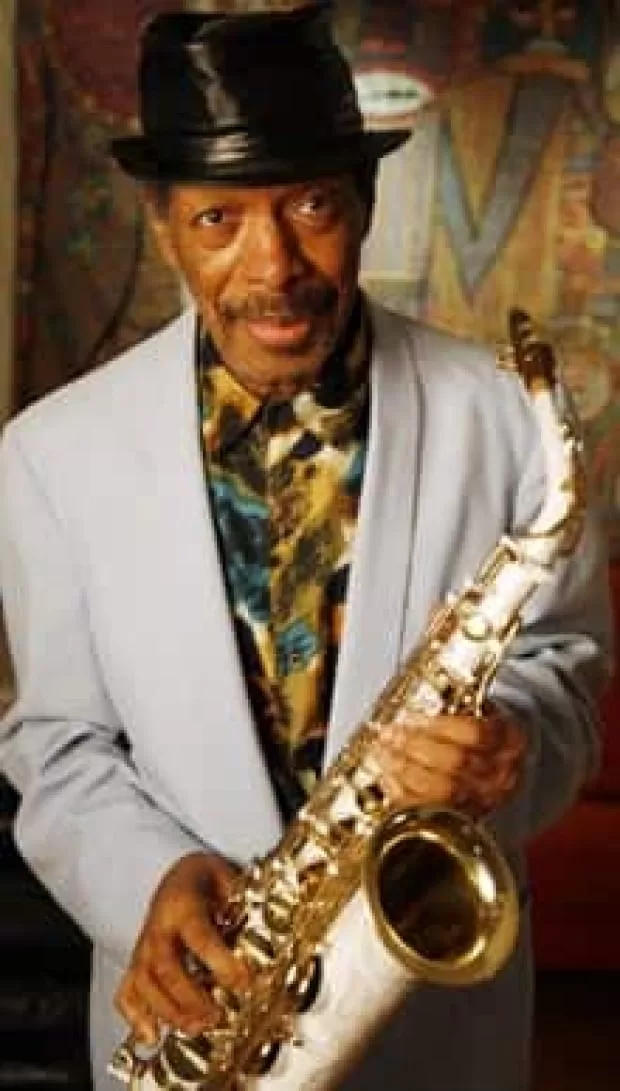
Ornette Coleman was an American jazz musician who changed the course of jazz history with his radical and innovative approach to improvisation, composition, and harmony. He was the leader and founder of the free jazz movement, a term he coined with his 1960 album Free Jazz: A Collective Improvisation. His music challenged the conventions and boundaries of jazz and opened new possibilities for expression and creativity.
Origins
Ornette Coleman was born on March 9, 1930, in Fort Worth, Texas. He grew up in a poor and segregated neighborhood, where he was exposed to blues, gospel, and country music. He taught himself to play the saxophone when he was a teenager, and started playing in local R&B and bebop bands. He was influenced by saxophonists such as Charlie Parker, Lester Young, and Coleman Hawkins, but he also developed his own unique style and sound, which often clashed with the expectations and tastes of his peers and audiences.
In 1949, he left Texas and joined a traveling show, where he met drummer Ed Blackwell, who would become a longtime collaborator. He then played with various R&B groups across the country, until he settled in Los Angeles in 1952. There, he met other musicians who shared his vision and curiosity, such as trumpeter Don Cherry, bassist Charlie Haden, and pianist Paul Bley. He also met producer and arranger John Lewis, who helped him record his first album, Something Else!!!, in 1958.
Breakthrough
In 1959, Coleman moved to New York City, where he made his debut at the Five Spot jazz club with his quartet, featuring Cherry, Haden, and Billy Higgins on drums. His music was met with mixed reactions, ranging from admiration and fascination to hostility and ridicule. Some critics and musicians praised his originality and freedom, while others dismissed him as a fraud and a charlatan. He was also accused of being out of tune, out of time, and out of key.
Despite the controversy, Coleman attracted the attention and support of some of the most prominent figures in jazz, such as Leonard Bernstein, Gunther Schuller, and Miles Davis. He also signed a contract with Atlantic Records, which gave him artistic freedom and control over his recordings. He released several albums on Atlantic that would become landmarks of jazz history, such as The Shape of Jazz to Come (1959), Change of the Century (1960), This Is Our Music (1961), and Free Jazz: A Collective Improvisation (1960).
Free Jazz was the first album to feature a double quartet, with two saxophones, two trumpets, two basses, and two drums, playing simultaneously and independently, without any predetermined structure, chord progression, or melody. The album was a groundbreaking and daring experiment, that opened new horizons for collective improvisation and expression.
Masterpiece
In 1962, Coleman left Atlantic and formed his own label, Contemporary Records. He also expanded his musical palette, by incorporating elements of classical, folk, and world music, and by playing other instruments, such as trumpet, violin, and Indian tambura. He also collaborated with other musicians from different backgrounds and genres, such as the Modern Jazz Quartet, Yoko Ono, and Jerry Garcia.
In 1972, he released what is widely considered his masterpiece: Skies of America. The album was a symphonic work, featuring the London Symphony Orchestra, conducted by David Measham, and Coleman on alto saxophone. The album was a synthesis of Coleman’s musical ideas and concepts, such as harmolodics, a term he invented to describe his approach to harmony, melody, and rhythm, based on the equality and interdependence of all musical elements.
Skies of America was a critical and commercial success, reaching number 171 on the Billboard 200 and number 38 on the Top Jazz Albums charts. The album was also nominated for a Grammy Award for Best Large Jazz Ensemble Album. The album was a testament to Coleman’s vision and ambition, and a culmination of his musical journey.
Legacy
Ornette Coleman is widely regarded as one of the most influential and important musicians of the 20th century. He has influenced a diverse range of artists, such as John Coltrane, Pat Metheny, Sonic Youth, and Radiohead. He has also received numerous honors and awards, such as the MacArthur Fellowship, the Pulitzer Prize for Music, the Grammy Lifetime Achievement Award, and the National Medal of Arts.
Coleman continued to perform and record until his death on June 11, 2015, at the age of 85. He left behind a rich and diverse body of work, that reflects his creativity, originality, and courage. He is a true legend of jazz and music, and a source of inspiration for many.


